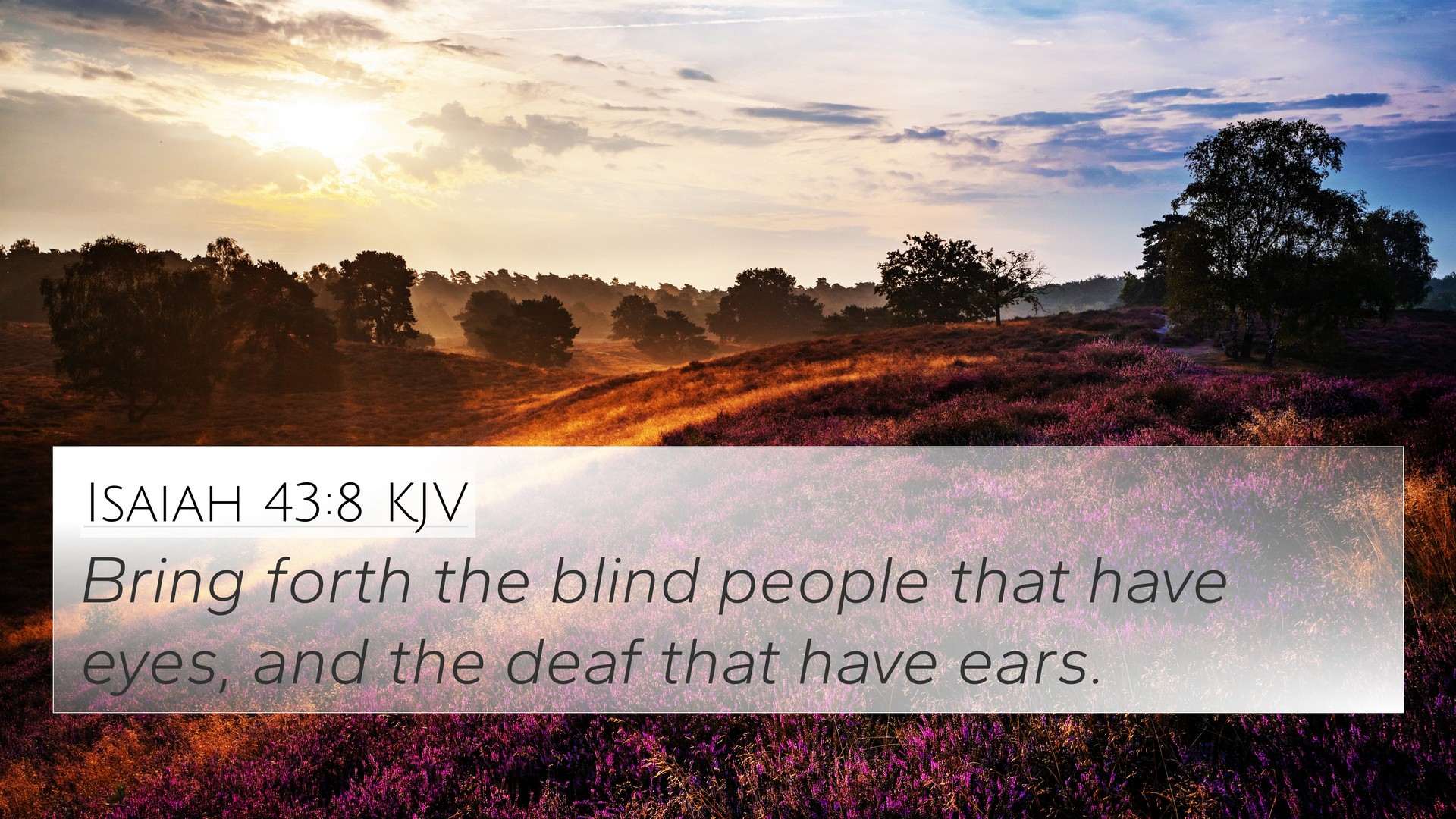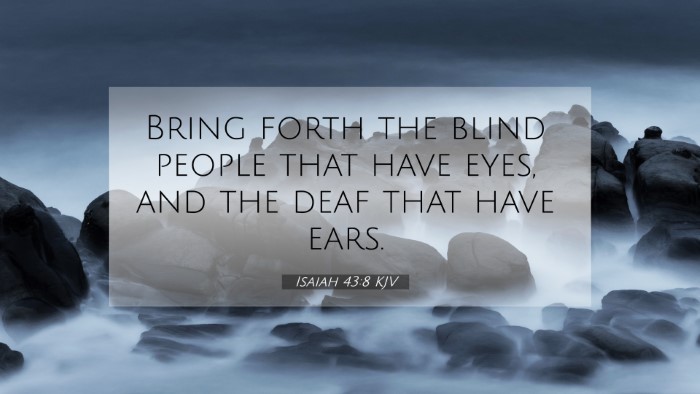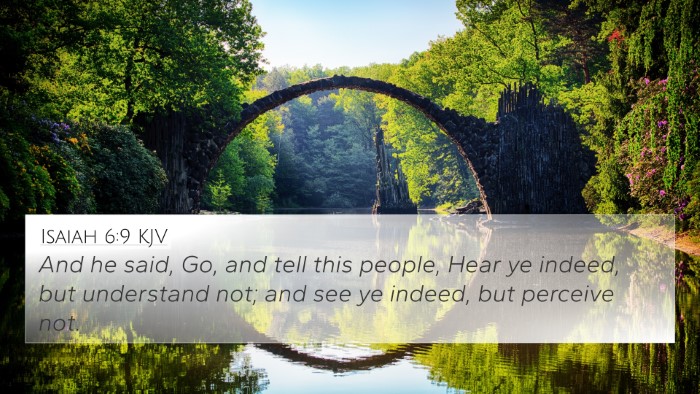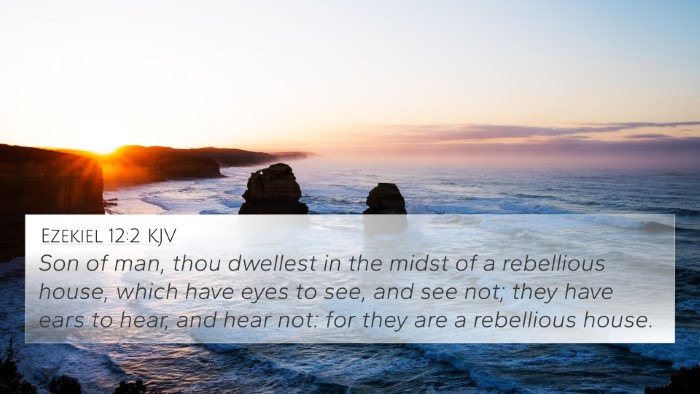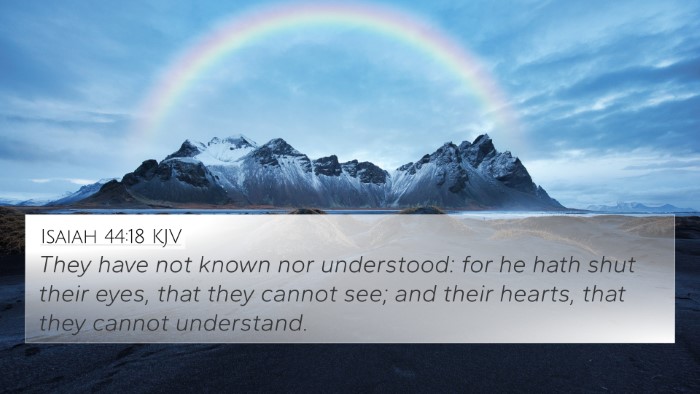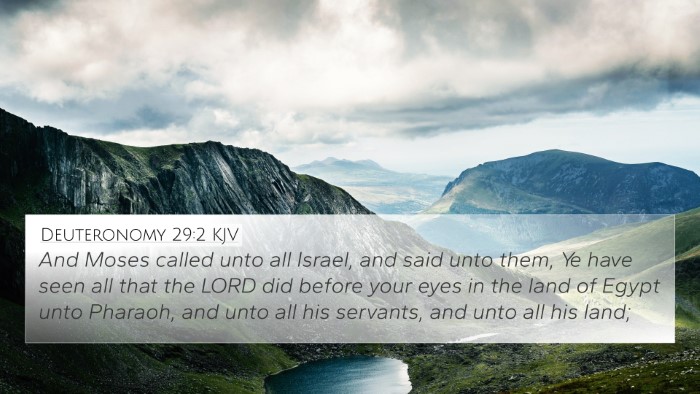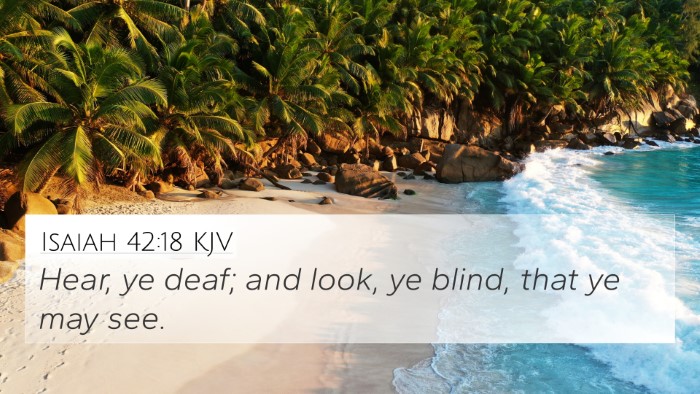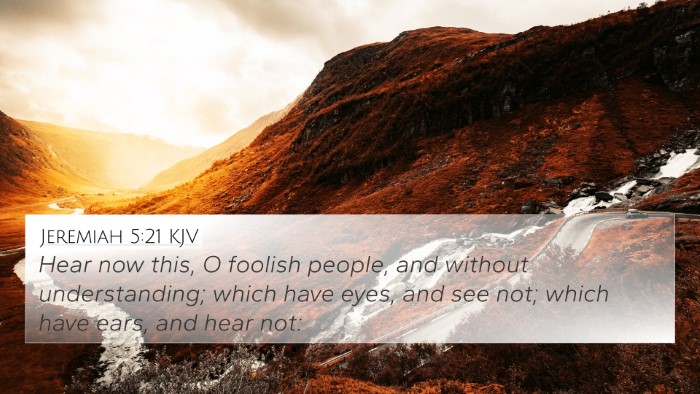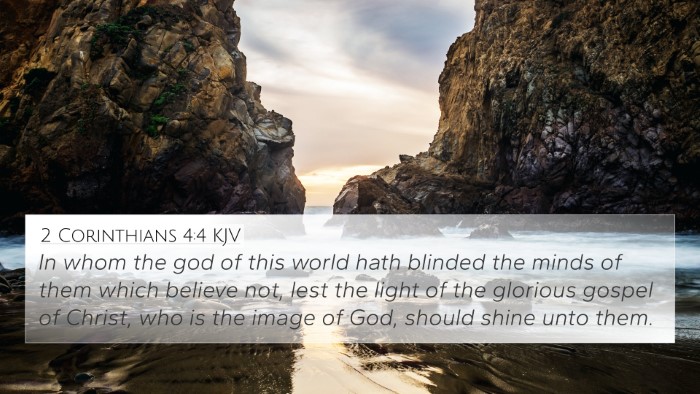Understanding Isaiah 43:8
Isaiah 43:8 states: "Bring forth the blind people that have eyes, and the deaf that have ears." This verse holds deep significance in the context of God's relationship with His people and His desire for them to recognize Him as the true God.
Insight from Public Domain Commentaries
This verse emphasizes the contrast between the physical state of blindness and deafness and the spiritual blindness and deafness of the people. Through the words of the prophet Isaiah, God calls forth those who are unable to see or hear, highlighting the reality that many who possess physical sight and hearing are still spiritually disoriented.
Matthew Henry's Commentary
Henry expounds on the notion that the call to "bring forth the blind people" serves as a reminder of God's patience and mercy. He suggests that though people may be spiritually blind, God still desires to guide them back to His light. It is a call to awaken those who are indifferent to their condition, urging them to recognize their need for God.
Albert Barnes' Commentary
Barnes points out that this verse addresses the people of Israel, who were often absorbed in their own spiritual blindness due to idolatry and sin. He emphasizes the importance of understanding their true condition and encourages a return to God. The mention of the "deaf" serves as a reminder of their failure to hear God's voice and commandments, illustrating a broader theme of rejection that permeated their society.
Adam Clarke's Commentary
Clarke interprets this verse as God's challenge to His people to acknowledge their lost state and to turn towards Him. He notes that the verse not only calls out the physical attributes of blindness and deafness but signifies a deeper spiritual blindness that affects society as a whole. The urgency in God's voice calls for an awakening to the truth of His power and sovereignty.
Cross-References in the Bible
Isaiah 43:8 can be cross-referenced with several key scriptures that enhance its meaning:
- Isaiah 6:9-10 - A passage emphasizing the spiritual blindness of the people of Israel.
- Romans 11:8 - Paul speaks about the spirit of slumber on Israel, echoing the message of blindness and deafness from Isaiah.
- Matthew 13:14-15 - Jesus refers to Isaiah to explain why people do not understand spiritual truths.
- Luke 4:18 - Jesus proclaims His mission to the blind and the oppressed, illustrating fulfillment of God’s purpose in Isaiah's prophecy.
- 2 Corinthians 4:4 - Paul addresses the god of this world blinding the minds of those who do not believe.
- John 9:39 - Jesus declares that He came into the world so that the blind may see and those who see may become blind.
- Revelation 3:17-18 - A warning to the lukewarm church, urging them to realize their true state of poverty and blindness.
Thematic Connections
In studying Isaiah 43:8 along with the cross-referenced passages, one can identify a theme of divine revelation and human recognition of God's truth. The awakening of the blind and deaf symbolizes the need for spiritual insight and responsiveness to God’s call.
Cross-Referencing Biblical Texts
By utilizing tools for bible cross-referencing and employing a comprehensive Bible cross-reference system, believers can deepen their understanding of the central themes found in scripture. Isaiah 43:8 becomes a key component in exploring the links between the Old Testament prophecies and their New Testament fulfillments.
Conclusion
In conclusion, Isaiah 43:8 encapsulates the ongoing dialogue between God and His people, highlighting their spiritual state and the call for awakening. By engaging with other biblical texts that address blindness, hearing, and divine revelation, readers can gain a richer understanding of God's redemptive work and His desire for an intimate relationship with humanity.
Final Thoughts on Cross-Referencing
Understanding how to find cross-references in the Bible can enhance one’s study experience. Identifying connections between Old and New Testament teachings, as well as detailed cross-reference studies, allows for a more profound grasp of God's word and His consistent message throughout the scriptures.
